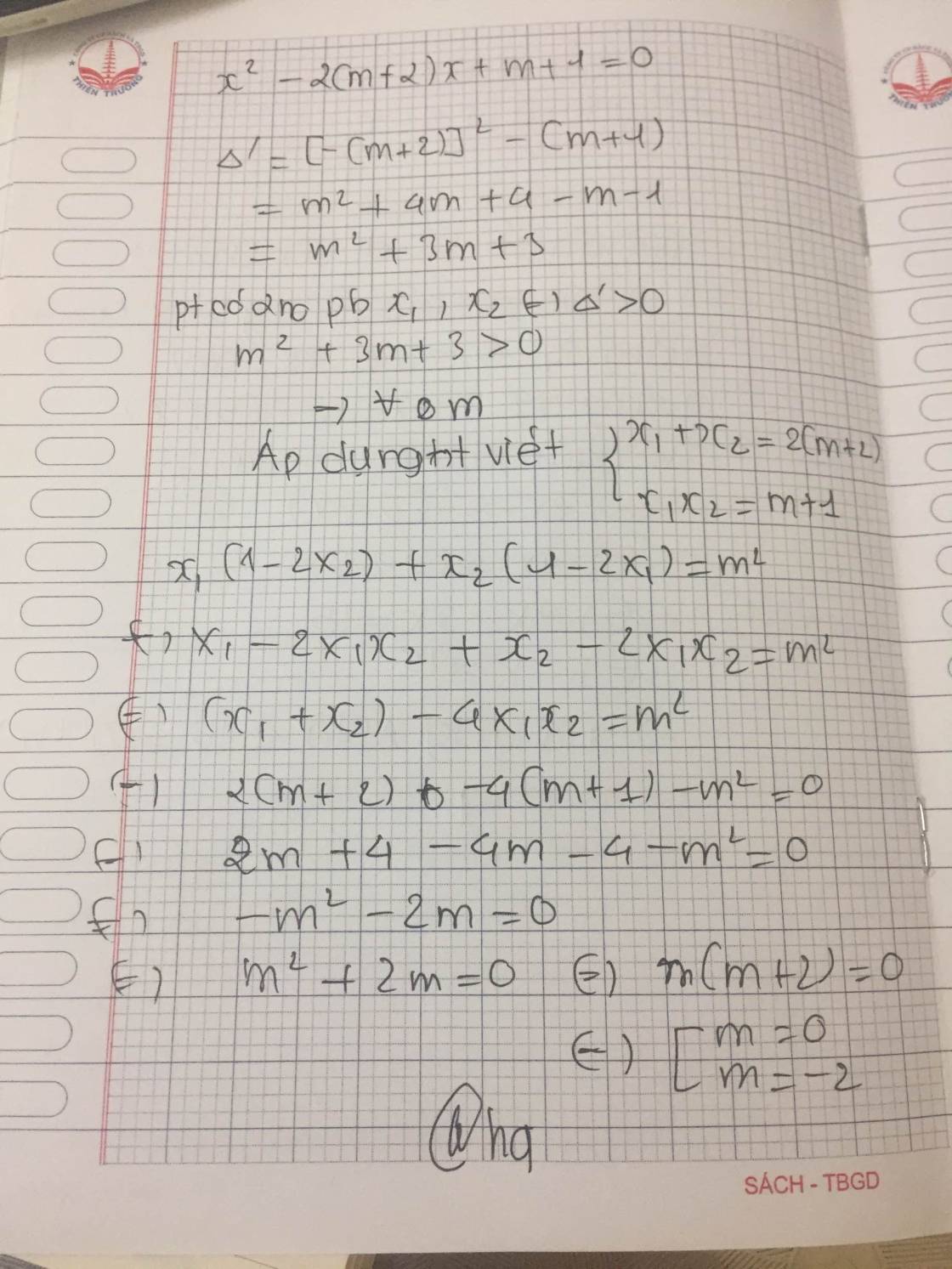

Hãy nhập câu hỏi của bạn vào đây, nếu là tài khoản VIP, bạn sẽ được ưu tiên trả lời.



\(\Delta=\left(2m+1\right)^2-4\left(m^2+m-2\right)=9>0;\forall m\)
Phương trình luôn có 2 nghiệm pb với mọi m
Theo hệ thức Viet: \(\left\{{}\begin{matrix}x_1+x_2=2m+1\\x_1x_2=m^2+m-2\end{matrix}\right.\)
\(x_1\left(x_1-2x_2\right)+x_2\left(x_2-2x_1\right)=9\)
\(\Leftrightarrow x_1^2+x_2^2-4x_1x_2=9\)
\(\Leftrightarrow\left(x_1+x_2\right)^2-6x_1x_2=9\)
\(\Leftrightarrow\left(2m+1\right)^2-6\left(m^2+m-4\right)=9\)
\(\Leftrightarrow2m^2+2m-4=0\)
\(\Rightarrow\left[{}\begin{matrix}m=1\\m=-2\end{matrix}\right.\)

Lời giải:
Để pt có 2 nghiệm pb thì:
$\Delta'=1-(2-m)=m-1>0\Leftrightarrow m>1$
Áp dụng định lý Viet: \(\left\{\begin{matrix} x_1+x_2=2\\ x_1x_2=2-m\end{matrix}\right.\)
Khi đó:
$2x_1^3+(m+2)x_2^2=5$
$\Leftrightarrow 2x_1^3+(2x_1+2x_2-x_1x_2)x_2^2=5$
$\Leftrightarrow 2(x_1^3+x_2^3)+x_1(2-x_2)x_2^2=5$
\(\Leftrightarrow 2[(x_1+x_2)^3-3x_1x_2(x_1+x_2)]+x_1^2x_2^2=5\)
\(\Leftrightarrow 2[8-6(2-m)]+(2-m)^2=5\)
\(\Leftrightarrow m^2+8m-9=0\Leftrightarrow (m-1)(m+9)=0\)
Vì $m>1$ nên không có giá trị nào của $m$ thỏa mãn.

a: Th1: m=0
=>-2x-1=0
=>x=-1/2
=>NHận
TH2: m<>0
Δ=(-2)^2-4m(m-1)=-4m^2+4m+4
Để phương trình có nghiệm duy nhất thì -4m^2+4m+4=0
=>\(m=\dfrac{1\pm\sqrt{5}}{2}\)
b: Để PT có hai nghiệm phân biệt thì -4m^2+4m+4>0
=>\(\dfrac{1-\sqrt{5}}{2}< m< \dfrac{1+\sqrt{5}}{2}\)